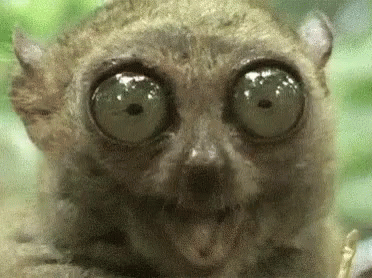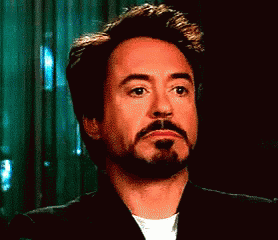"So, you do have scoliosis; in fact, you have pretty severe scoliosis. Your scoliosis is the kind where we recommend surgery." I can still hear the medical resident's voice perfectly as he said these words to my child last summer. We had been shopping a month before at Donna's Dress Shop in Kansas City where I helped zip up a dress and noticed something funny about the waist, an assymetry. When we got home that afternoon, I started googling images and it was pretty clear that what I had seen was, indeed, scoliosis. What followed was a whirlwind of doctors' appointments and an eventual referral to Children's Mercy Hospital where we met our surgeon, but only after meeting the resident who told us that this kind of scoliosis was the surgery kind.

After we were shown the radiographs, we sat in silence, my eyes wider than that gif with the little animal in the tree chewing on a piece of bark. My kiddo looked at their shoes, legs restless. When the doctors eventually left us alone in the room, we laughed. We laughed so loud and so hard, overwhelmed with the absurdity of it all. The xrays didn't even look real; it looked like their spine was trying to escape their body. We laughed all the way to Wendy's, my newly diagnosed child's choice for lunch. We got frosties and dipped fries in them and laughed all the way home.
When we got home, I locked myself in the bathroom and cried. My baby was going to have a spinal fusion surgery. A five hour surgery, with a five night hospital stay, and a five week recovery time. How was this real?
I never wanted to see any footage of a surgery but I wanted all of the information I could find. Sadly, there's a real lack of current books on scoliosis and many of the ones that do exist are about bracing. Deenie is probably the best known of all of the books pertaining to adolescent scoliosis; it is highly revered and was recommended to us many times. But, my teenager was beyond the brace. (Bracing only helps stop a curve from getting worse, it doesn't reverse a scoliosis curve... or in my child's case: curves. Plural.) And no offense to our lord and savior of teen fiction, Judy Blume, but I really wanted something that was written after 1973. Alyson Gerber's book (which came out in 2017) simply titled Braced sounded great except for... well, it's about a brace. Most kids with scoliosis will never need a spinal fusion surgery so these books can be a great resource to them. And although I found myself turning more and more to personal blogs online and even instagram hashtags about scoliosis, I still had my eyes open for books that were relevant to our situation. I never found them. But, perhaps I found something even better.
Before the dreaded surgery date, a friend suggested Nnedi Okorafor's book titled Broken Places & Outer Spaces. I did not read it then. I love Okorafor's writing and absolutely adored her book Akata Witch but when I went to check out Broken Places I saw this description and my eyes got bigger than that Robert Downey Jr gif where he's feeling very surprised: It begins, "Nnedi Okorafor was never supposed to be paralyzed. A college track star and budding entomologist, Nnedi's lifelong battle with scoliosis was just a bump in her plan--something a simple operation would easily correct. But when Nnedi wakes from the surgery to find she can't move her legs, her entire sense of self begins to waver." uuuuuuummmmmmmmmmmmmmmm nooooooooooooooooo. More blogs and hashtags for us. Ignore all books and take your anti anxiety meds and get through it. And so we did.

My darling child woke up after surgery and moved their feet and toes on command. My precious baby's surgeon didn't have an uncontrollable hand spasm wreaking havoc on the spinal cord as I feared might happen. That photo I saw of him during one of my late-night, obsessive searches of his credentials where I thought he looked slightly cross eyed? A trick of the light or my paranoid brain. My kid woke up in pain and with an overwhelming craving for Sprite but otherwise not much different than when they'd fallen asleep. So later, after I felt more and more confident that we had, in fact, gotten through the worst of it and that everything went, just as our surgeon promised, without a hitch, I sat down and read Nnedi Okorafor's book. It was beautiful.
You may be familiar with Okorafor's book, Akata Witch, about an albino Nigerian-American girl who discovers she has magical powers. It is often (a little too quaintly) referred to as the "Nigerian Harry Potter." In it, Sunny is a gifted athlete but cannot spend much time outdoors because of her albinism. In other words, she cannot use her gifts because her body is holding her back. She soon discovers, however, other talents which make her even more special and incredible. She is magic.
In her memoir, Okorafor describes waking up from surgery and her body not working the way it's supposed to. She cannot feel anything from the waist down. Just like Sunny, Nnedi was also supposed to be an athlete, a star runner. Those days, she knows, are behind her. While in the hospital, the reality of her paralysis takes hold but still feels tenuous as the many pain killers she's on induce hallucinations. She sees bugs crawling up the walls while flowers and vines grow and breathe all around her. The reader sees a girl struggling as she slowly begins to realize she has lost the use of her legs-- her power. But Okorafor takes it as an opportunity. Not a day or two after she begins to come out of her pharmaceutical haze, she begins to write. And as we now know from her work, she has found her true power.
Nnedi Okorafor eventually regains her ability to use her legs, although they will never be as strong as they were when she was a track star. I have followed her on Twitter for quite a while now and she often discusses her surgery and recovery and how it all lead to her true calling in life: becoming a writer. When people send their sympathies to her, she tells them to save it. She is not lamenting her loss of complete able-bodiedness; she is who she is because of what happened that day. Nnedi, like her character Sunny, like my beautiful 13 year old child, and like all children who have found the strength to endure and thrive with a disability, is truly magical.
- Sarah Mathews is an Accounts Assistant at Lawrence Public Library.


Add a comment to: The Shape of Things